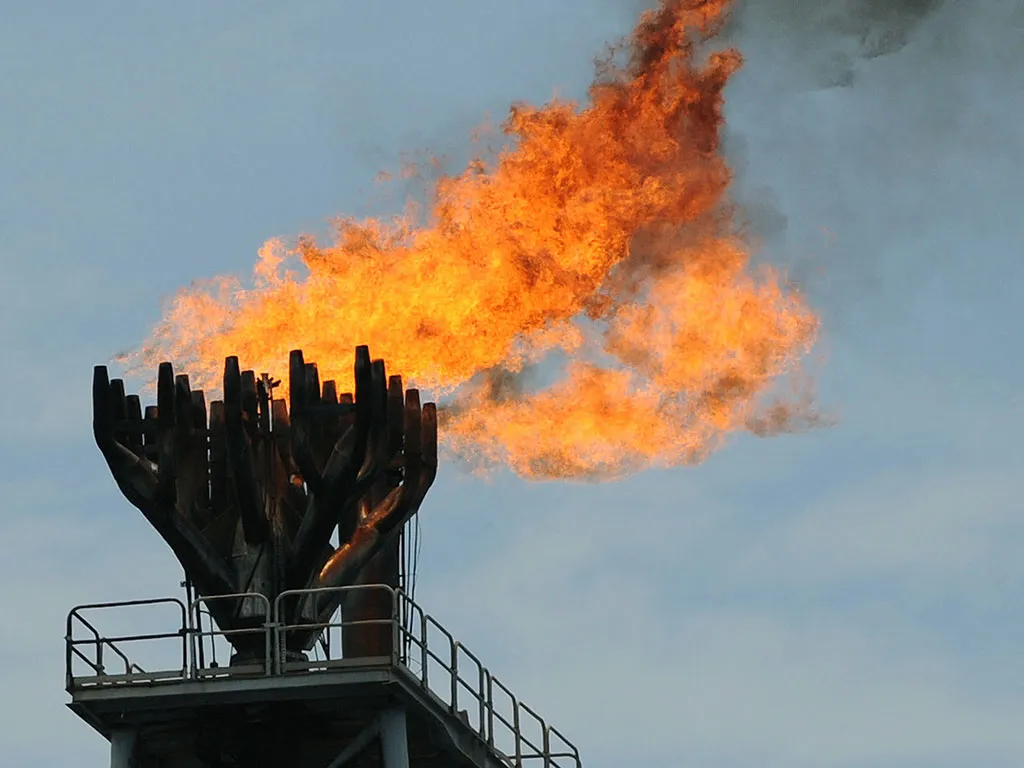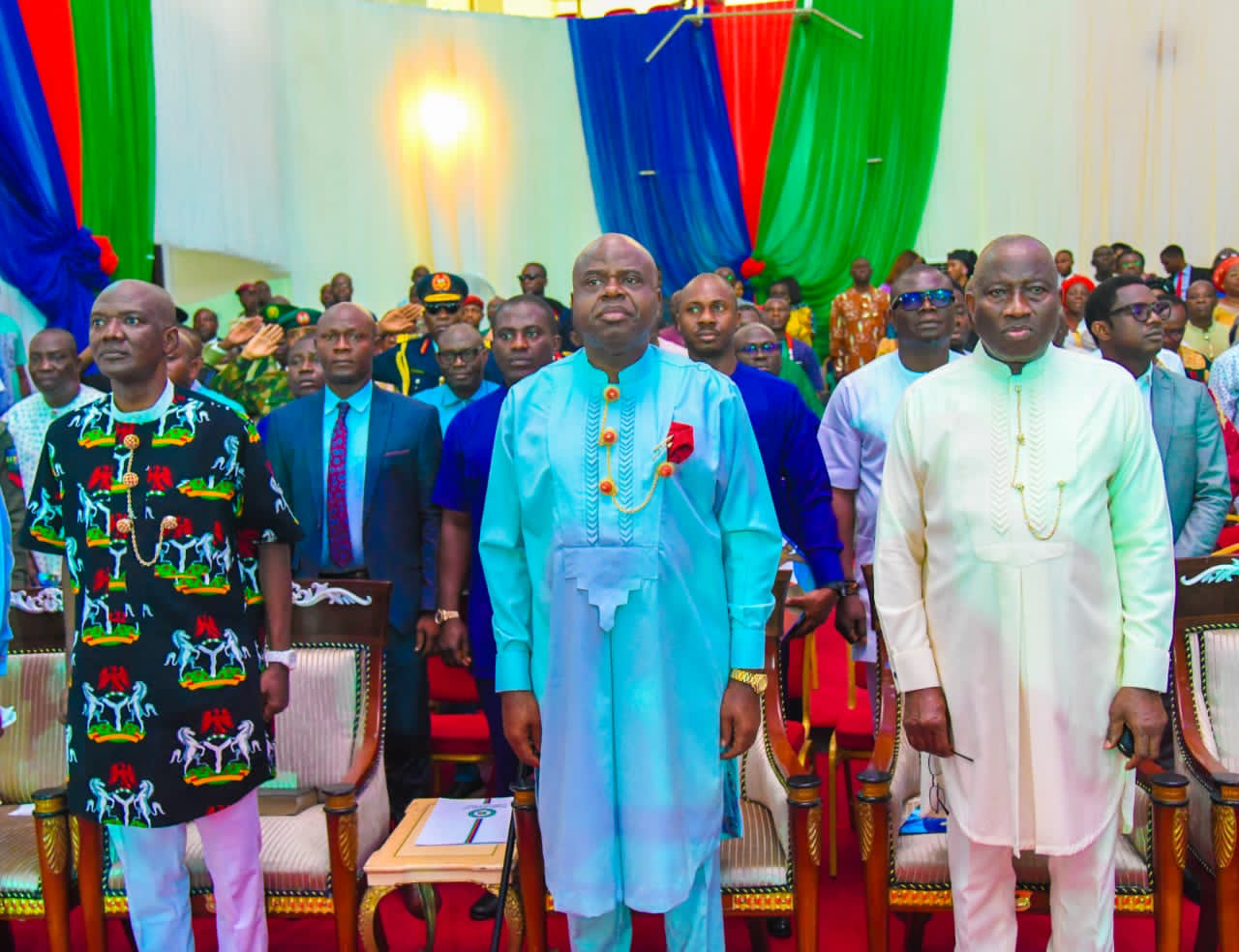By EDU ABADE,
Environmental activists from three African countries namely: Nigeria, South Africa and Uganda have insisted on total cut on emissions and urgent end to gas flaring, which they described as the major pollutants of the environment and most potent contributors to the menace of climate change.
Citing the severe flooding in Nigeria and other countries of the continent, they stressed the need for African nations to urgently shift from fossil fuel to mitigate the impacts of climate change and save the environment from further degradation and other natural disasters that might hit the continent if they failed to desist.
They made the assertion at the launch of a report on Assessing Climate Change, COP26 Commitments in Africa: Case Study of Nigeria, South Africa and Uganda, put together by the Corporate Accountability and Public
Participation Africa (CAPPA), Uganda-based Africa Institute for Energy Governance (AFIEGO) and South African Climate Action Network (SACAN), with support from the Climate Emergency Collaboration Group (CEGG).
In the report, which was unveiled in Lagos on Wednesday, November 2, 2022 was released on the sidelines of the COP27 slated for between November 6, 2022 and November 18, 2022 in Sharm El Sheikh, Egypt, the groups noted that although there was improved awareness on the urgent need to act on climate change commitments in Africa, significant encumbrances in the race towards a clean energy transition and carbon-less society continue to stifle real progress.
Executive Director of CAPPA, Akinbode Oluwafemi and his counterparts from Uganda, Dickens Kamugisha of AFIEGO and Thando Lukoko of SACAN both of whom joined the launch virtually, canvassed urgent and feasible
actions to ensure a just energy transition and stressed the need safeguard the continent from the dangers of climate change, which they said could get worse if nothing was done very quickly.
In his address at the unveiling of the report titled: _Just Energy Transition Must Be People-Focused,_ Oluwafemi, said: “Africa carries the greatest burdens of climate change even though it contributes less than 3 per cent of global emissions. We are all witnesses to climate-induced floods in Nigeria, Chad, Republic of Benin and Cameroon.
“South Africa also had its unfair share with floods that led to mudslides that led to hundreds of deaths. The recent Intergovernmental Panel on Climate Change (IPCC) report predicts that these crises will continue and likely displace half of Africa’s 1.4 billion population size by the year 2030 unless something is done urgently.
“As signatories to the Paris Agreement, African countries just like their Global North partners are expected to carry out some national activities to cut down on emissions that cause climate change. These activities known as Nationally Determined Contributions (NDCs) are reviewed every five years.
“At COP26 in Glasgow, the Committee of Parties (COP) restated their commitment to implementing the agreement and promised more and while all 54 African countries signed the Paris Agreement, the African Development Bank (AfDB) noted that most NDCs submitted by African countries were hastily put together and did not consider long-term effects.”
The report went ahead to recommend that African countries should leverage green economic opportunities including increased demands for electric vehicles, solar panels and batteries, among others, which are produced with critical minerals some of which are sourced from Africa places. This puts Africa at a vantage point to renegotiate its position on the global stage while stimulating inclusive economic growth.
It added that they must remove barriers to renewable energy technologies in Africa such as import tariffs to make renewable energy accessible and affordable to most of the energy-poor African population and withdraw Support for Heavy-Carbon Project such projects like the Dangote Refinery and Petrochemicals and Uganda’s EACOP, which will lock Africa into more fossil fuel-related investments.
Other recommendations include, framing a just transition in an African context, that is: “Framing the understanding of just and equitabletransition from an African context to take care of the “one-size fits
all.” A just transition in an African context must be equitable, inclusive, gender sensitive and respect the human language-cultural and religious rights of peoples.
Read Also: Terrorism & Banditry: Expunge all Operational Lapses, COAS Charges Commanders
“A just transition must protect workers and communities since transition comes with a price, sometimes painful, as well as harness capacity to secure funding Support to Finance Africa’s climate ambition since the Africa Group of Negotiators has called for a $1.3 trillion yearly in climate finance to be made available from 2025. There
is the need to use the global stage afforded by COP27 to campaign and secure commitment to this as well as a strategy to follow up and net in the commitments after the conference.
“Africa government should drop false solution schemes such as carbon trading schemes, and gas as a transition fuel as a pathway towards carbon emission reduction, increase Climate Change Education and Awareness, and ensure Human Rights protection with special focus on mainstreaming human rights protection into climate change mitigation and adaptation actions, while encouraging social dialogue with communities, the media, and civil society to negotiate Africa’s energy transition imperatives.”
The report added that to ensure workable energy transition, Africa must scale up adaptive capacities as the recent flooding in Uganda and Nigeria showed that a lot is still lacking in the terms of building resilience and providing adaptation support for victims of climate change in Africa.
The report also urged the global community to pay loss and damages to devastated African communities, insisting that the global north and big polluters must make reparations for historical damages and losses
suffered by individuals and communities on the frontlines of the climate change crisis in Africa.
It further canvassed debt cancelation, adding that Africa’s economies need a breather through debt cancellation to better focus and redirect scarce resources to their climate change actions and aspirations.
African governments and multinational oil companies should stop financing heavy-carbon projects on the continent to the extent that financiers of heavy-carbon projects in Africa, especially European governments, Asian and North American financial institutions must stop pumping monies into projects that risk locking Africa into fossil-fuel dependency.
In the report, the groups also demanded full stoppage of fossil fuel burning and emissions, arguing that the most contributions to global warming come from industrialised nations of the world and that false solutions like carbon trading, would continue to create a false sense of progress, while global temperature continues to rise.
“We need concerted effort to stop fossil fuel burning and move towards the use of renewable energy sources to accelerate the reduction of GHG emissions and by extension global warming,” they added.
Follow The Trumpet on all our social media platforms for more updates:






